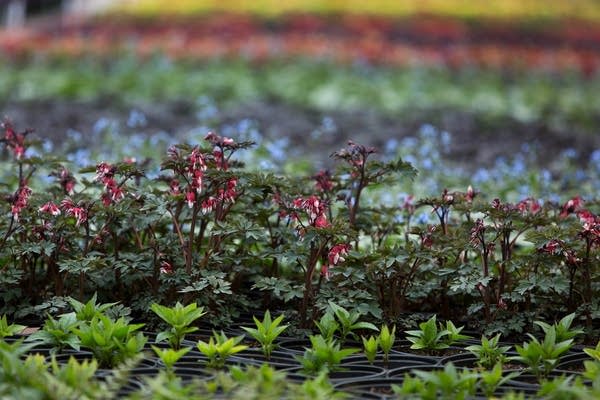As pesticide worries grow, 'bee safe' plants generate a buzz

A greenhouse full of neonicitinoid-free perennials at Bachman's growing range in Farmington.
Jennifer Simonson/MPR News
Go Deeper.
Create an account or log in to save stories.
Like this?
Thanks for liking this story! We have added it to a list of your favorite stories.


